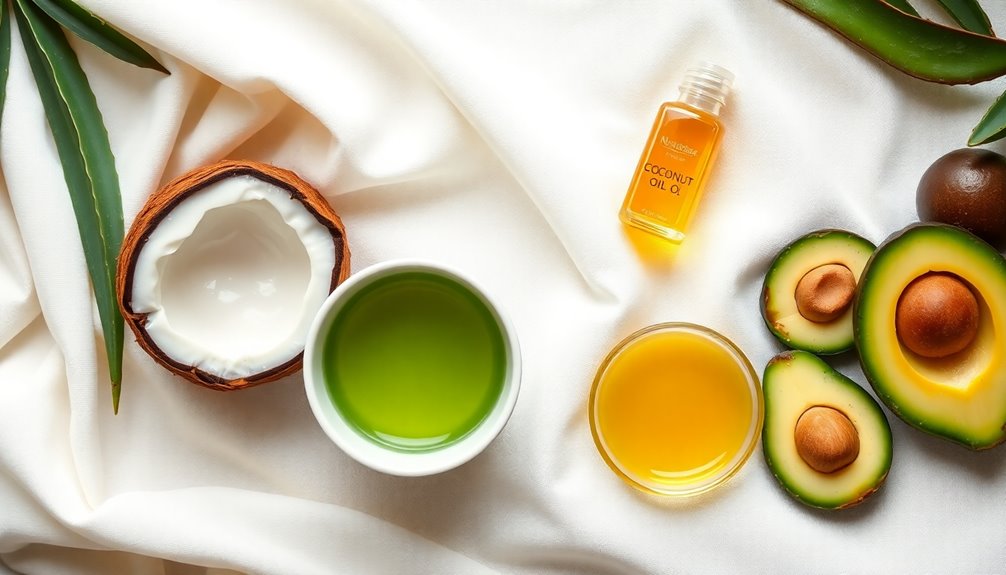The best time to have sex is in the morning. During this time, testosterone levels peak, boosting libido and enhancing your experience. Plus, starting your day with intimacy can elevate your mood and energy. Late-night sessions may not be ideal, as testosterone levels dip, leading to potentially compromised performance. If you're aiming for conception, focus on your fertile window, particularly the days leading up to ovulation. Remember, lifestyle factors like stress and fatigue can affect desire as well. If you're curious about optimizing your timing and understanding your cycle, there's plenty more to uncover.
Key Takeaways
- Morning Intimacy: Engaging in sex in the morning can enhance mood and energy levels for the day ahead due to higher testosterone levels.
- Fertile Days: Aim for intercourse during the three days leading up to ovulation for the highest chances of conception.
- Cervical Mucus Monitoring: Track changes in cervical mucus; clear and slippery indicates peak fertility, signaling optimal times for sex.
- Stress-Free Environments: Weekends, especially Saturday mornings, often provide a relaxed atmosphere for intimacy, free from daily distractions.
- Ovulation Tracking Tools: Utilize ovulation predictor kits and apps to accurately identify fertile windows, maximizing chances for conception.
Factors Influencing Timing

When considering the best time to have sex, it's vital to recognize how various factors influence your timing. Hormonal levels play a significant role, with peaks in testosterone and estrogen during the morning often boosting libido.
Your body's circadian rhythm also affects energy levels and sexual desire, as many people feel more aroused at night. However, high melatonin levels can hinder sexual performance, making earlier times in the day more favorable.
Engaging in intimacy in the morning can elevate your mood and energy throughout the day.
Finally, individual schedules and lifestyle responsibilities are key; stress and fatigue can diminish desire, so finding the right moment that aligns with your daily life is essential for a fulfilling sexual experience.
Ideal Times for Intercourse

Understanding the various factors that influence timing sets the stage for identifying prime times for intercourse. For the best chance of getting pregnant, focus on the fertile days, particularly the three days leading up to ovulation, which typically occurs 12-16 days before your next period.
Engaging in sex during these days maximizes the likelihood of successful fertilization since sperm can survive up to five days in the female reproductive tract.
Mornings often offer optimal physiological conditions, as testosterone levels are highest, enhancing your sexual performance. On the other hand, late-night sessions between 11 PM and 1 AM may coincide with lower testosterone levels, potentially affecting performance.
For a relaxed atmosphere, Saturday mornings are prime for intimacy without distractions.
Understanding Your Cycle
Your menstrual cycle plays an essential role in determining the best times for intimacy, especially if you're trying to conceive. Typically, you ovulate around day 14 of your cycle, but this can vary based on its length, ranging from 21 to 35 days.
Understanding when you're most fertile can greatly increase your chance of getting pregnant. Your fertile window spans the five days leading up to ovulation and the day of ovulation.
Noticing changes in cervical mucus, like clear, slippery textures resembling egg whites, can indicate the time of ovulation. Utilizing ovulation predictors or apps to track your cycle patterns helps you pinpoint these critical days, ensuring you have sex during your most fertile times.
Lifestyle Considerations

While many factors influence the best time for intimacy, lifestyle considerations can greatly enhance your sexual experience.
Morning sex often boosts hormone levels like testosterone and estrogen, which can improve your chances of increased libido and enjoyment. Starting your day with intimacy not only elevates mood and self-esteem but also creates a leisurely environment free from distractions, fostering deeper connections.
Establishing a routine of morning intimacy promotes relationship satisfaction, as it encourages exploration and strengthens emotional bonds. Plus, regular sexual activity can contribute positively to cognitive health, improving memory and brain function.
Tools for Tracking Ovulation
Tracking ovulation can greatly enhance your chances of conception, and several effective tools are available to assist. Ovulation tracking tools, like predictor kits, test urine for LH surges, indicating those essential days before ovulation when the egg is released.
Many free mobile apps let you log your menstrual cycle and predict ovulation based on your unique patterns. Monitoring changes in cervical mucus is another natural method; when you notice clear, slippery mucus resembling egg white, it signals peak fertility.
If you're trying to get pregnant and want precision, advanced fertility tracking devices can offer insights but might raise privacy concerns. Regularly tracking your cycle helps identify the best days for intercourse before your next period, boosting your chances of conception.
Frequently Asked Questions
What Is the Peak Time for Sex?
The peak time for sexual activity typically falls in the morning, around 7 AM to 9 AM.
During this time, testosterone levels are at their highest, boosting libido for both you and your partner.
Engaging in sex then can lead to a positive mood and increased energy throughout the day, thanks to the release of endorphins.
Conclusion
To summarize, finding the best time to have sex can transform your intimate experiences into something magical. By considering factors like your cycle and lifestyle, you can maximize pleasure and connection. Remember, timing isn't just everything—it's the secret sauce that can elevate your relationship to new heights. So, embrace the tools for tracking ovulation and explore those ideal moments together. Trust us, a little planning can lead to fireworks that'll leave you both breathless!










